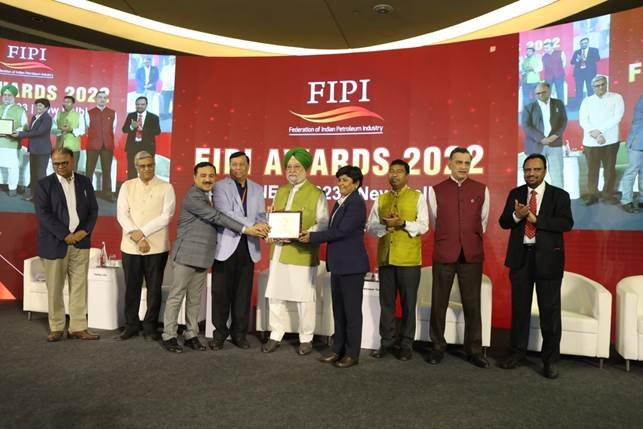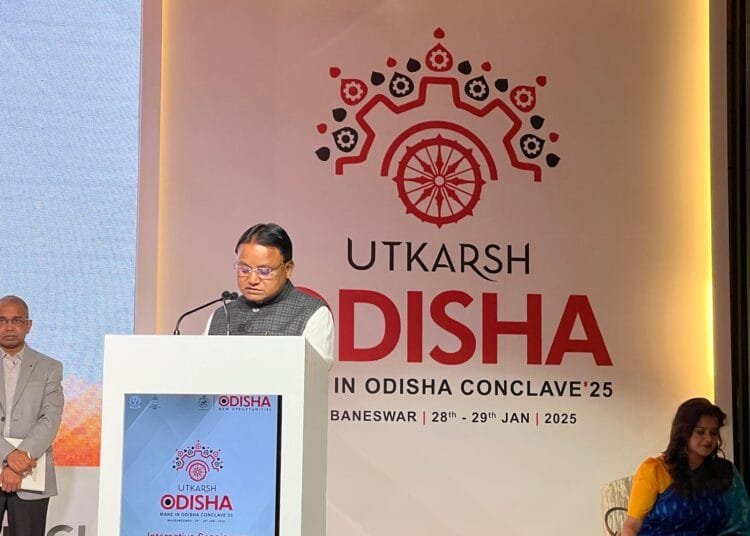Puri highlights landmark reforms in the hydrocarbon industry
The Indian hydrocarbon industry is gravitating towards a new arena of development, while a 7.2% economic growth in FY 2022-23 indicates resilience in the country’s economy despite multiple global headwinds during the year arising from economic and geo-political uncertainties.
Petroleum & Natural Gas Minister Hardeep Singh Puri gave this assuring message at the Federation of Indian Petroleum Industry (FIPI) Oil & Gas Awards-2022 ceremony held on 8 June 2023.
Puri told stakeholders at the awards about India’s ambitious journey of energy transition culminating in achieving ‘Net Zero Carbon’ by 2070.
He pointed out, “However, for the transition to be enduring and stable, it is imperative that the accessibility and affordability aspects of energy remain intact.
“While we are only one of the G20 countries on course to achieve its Paris ambitions, we are also aware that in the coming decades, India’s energy base load will be met by hydrocarbons.
“In this context, the Indian Government has undertaken landmark reforms in the upstream, midstream, and downstream sectors of Hydrocarbon industry in India.”
Puri further said that reforms in the energy sector in general and the oil & gas sector in particular demonstrate our commitment to energy security, ease of doing business and energy transition.
“With cabinet approving a series of critical gas pricing reforms which would not only lay foundation of a sustainable, affordable, and secure energy future for Indian citizens, but will also incentivize investment in India’s E&P sector by ensuring that gas production from new wells of nomination fields will receive 20% higher prices,” said the Minister.
“These reforms will not impact private operators of NELP/HP-HT fields or new gas production from field development plans submitted after February 2019.”
Throwing light on the foresightedness of the Government, Puri explained the benefits of correct decisions taken at the correct time.
“General public has already started reaping the benefits of planned pricing. We have already seen that the average cost of PNG has been reduced by about 10%, and CNG has seen a 6-7% reduction in prices,” Puri said.
“As a developing nation we are importing 85% of our oil demand and close to 50% of our demand for natural gas, therefore we are acutely aware of the need for a just and stable energy transition.”
He emphasized the Government’s plans on clean and green energy:
- Diversification of supplies;
- Increase of alternate energy sources like Biofuels, Ethanol, CBG and Surya Nutan (an indigenous indoor solar cooking system design, developed and patented by IOC R&D Centre);
- Increasing E&P footprint;
- Energy targets through EVs & Hydrogen.
The Minister continued, “India has one of the largest synchronous grids in the world, capable of handling intermittent renewable energy and we have achieved ‘One Nation-One Grid-One Frequency’.
“We have enacted Green Hydrogen Policy with a production target of 5 million tonnes by 2030 and related development of renewable energy capacity.”
Puri also spoke about the ‘Global Alliance on Biofuels’ with USA and Brazil during India’s Presidency of G20.
“The energy transition, with its requirement of combining disruption and scale, will only be truly successful when all stakeholders, big and small, collaborate to complement each other’s strengths through the creation of symbiotic relationships and strong ecosystems,” he said.
“It is crucial to acknowledge that our energy transition journey is ongoing, and we face challenges that require collective efforts.
“However, with the determination and resilience of our nation, I am confident that we will continue to make significant progress towards a sustainable and prosperous energy future.” Fiinews.com









